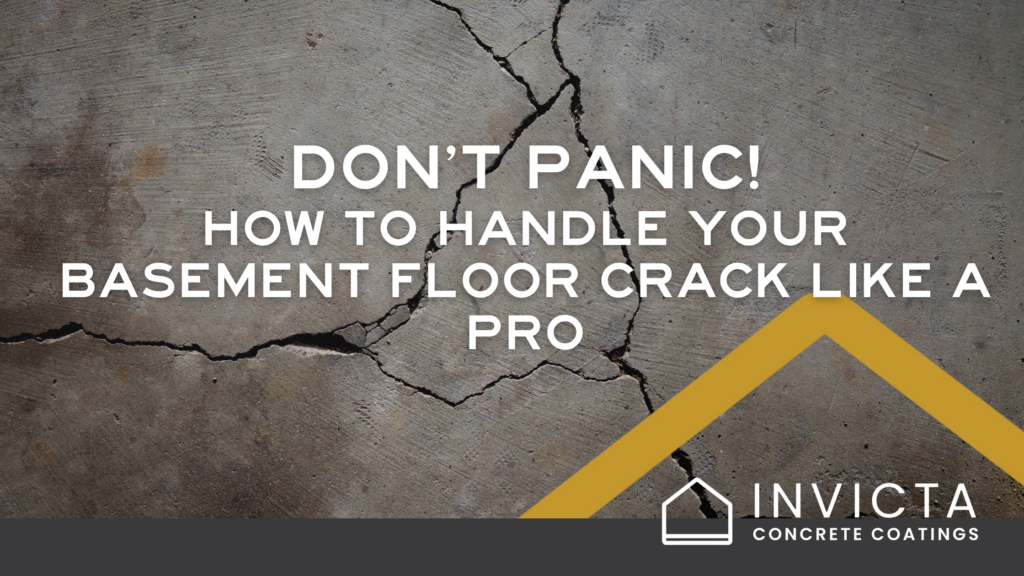Finding a crack in your basement floor can be alarming, but it’s often a common and manageable issue. Cracks can occur due to natural wear and tear, shifting soil, or moisture problems. Fortunately, most of these cracks don’t indicate serious structural damage and can be repaired with the right tools and techniques. In this guide, we’ll cover the causes of basement floor cracks, how to repair them, and ways to prevent future issues.
What Causes Basement Floor Cracks?
Basement floor cracks often develop due to one or more of the reasons listed below:
1. Concrete Shrinkage
Since concrete dries, it shrinks typically, creating small harmless hairline cracks. Those are part of the natural settlement of any home and do not pose any risks structurally.
2. Soil Settlement
Movement over time on the soil below your home is another cause of concrete foundation cracks, especially if your house rests on expansive soils like clay. Such movements stress the concrete foundations and result in cracks.
3. Hydrostatic Pressure
Water accumulation surrounding your foundation exerts hydrostatic pressure – that is water exerting its pressure through the weakened spots in the concrete due to its cracks. This is a more severe cause and should be taken seriously.
4. Temperature Changes
Due to extreme temperature fluctuations, the concrete ends up expanding and contracting, thus resulting in cracks with time, especially in the severely changing climatic conditions.
When to Call a Professional
In some cases, it’s best to consult a professional, especially if:
- Large and Spreading Cracks: A more significant structural problem that requires expert care may arise if a crack is greater than 1/8 inch in size and keeps spreading.
- Water Seepage: Hydrostatic pressure is most likely the cause if water is seeping out of it. When water builds up in the soil surrounding your foundation, it creates hydrostatic pressure, which pushes against the concrete and causes it to crack. Advanced waterproofing solutions will be required under such circumstances.
- Multiple Cracks in a Pattern: When there is a pattern of cracks, such as a weblike pattern or parallel lines, it can indicate more significant structural damage, including foundation settling or shifting.
- Signs of Foundation Movement: Sloping floors, cracked walls, and doors and windows that don’t close as they used to are frequently further indicators that there is a foundation issue. This can occasionally be a sign that your foundation is truly changing, which, if ignored, could cause serious harm.
Invicta Concrete Coatings offers expert assessments and advanced repair solutions, such as foundation stabilization or waterproofing systems.
How to Prevent Future Basement Floor Cracks
Prevention is the best way to maintain your perfectly intact basement floor. Follow these steps to prevent future cracks:
- Control Moisture Levels: One of the main causes of basement floor cracking is this. By maintaining the ideal humidity level in your basement, you can prevent moisture absorption that could eventually cause your concrete to break.
- Improve Drainage Around Your Home: Water can collect around your house due to poor drainage, which raises the risk of major problems with the floor and foundation. Make sure that your drainage systems, gutters, and downspouts are operating properly. Water should be directed away from your foundation.
- Install a Vapor Barrier: If there is vapor beneath the concrete floor, this suggests that the slab is impervious to moisture. It is strongly advised that vapor barriers be installed in basements to reduce moisture-induced slab cracking.
- Routine Inspections: Regularly inspect the basement floor for any new cracks or alterations to the size of existing ones. Minor cracks cannot grow and spread to create significant structural damage if they are treated quickly. Regular maintenance will instead be able to identify additional possible problems, including foundation settling, before they become too serious.
If you’re unsure about the extent of the damage or need professional advice, don’t hesitate to contact Invicta Concrete Coatings for expert assistance. Our team will give your basement floors the proper protection to withstand the natural pressures.




